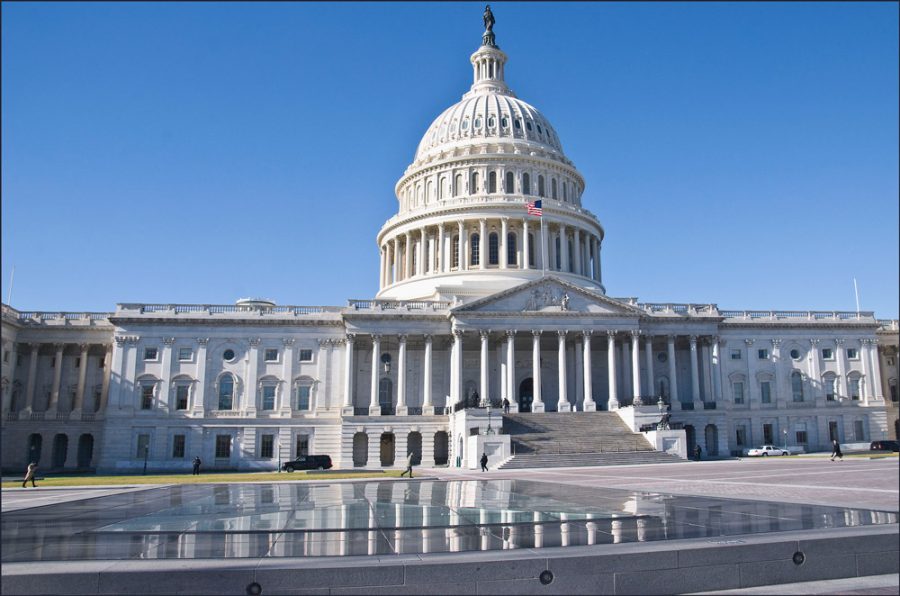Government shuts down; reopens due to bipartisan bill
January 24, 2018
The United States government shutdown on Jan. 20 because Republicans and Democrats have not been able to come to an agreement on the U.S. budget for the current fiscal year.
The fiscal year began in October, but no budget has been passed yet. Congress has been passing stopgap bills to keep the government from shutting down. Stopgap bills are temporary bills to take the place of a real budget until one is passed.
When the government has a shutdown, any activities that the government considers unessential are also shutdown. Essential services such as, Social Security, US Postal service, and Air Traffic Control still function during a shutdown. But this means that many government employees are out of work and aren’t being paid.
“It’s a tremendous inconvenience for millions of Americans and certainly has the potential to lead to even more serious problems the longer it stretches” Andrew Prokop stated.
Although the budget plays the biggest part in a government shutdown, there were other factors involved. One of those factors was immigration. Ever since President Donald Trump announced that Deferred Action for Childhood Arrivals (DACA) would be ending, Democrats have been wanting to create a permanent fix. Which is why the government had to shut down.
Some Democrats in the senate decided not to support government funding bills because they wanted to see progress with DACA. This was a problem because to pass government funding bills, there needs to be a super majority. That means that 60 senators must vote for it, but without the Democrats that could not be possible.
Another significant factor that lead to the cause of the shutdown was Trump. He changes his point of view on topics many times, which makes it difficult for both Democrats and Republicans to negotiate. Republicans aren’t sure what Trump wants or what he will sign off on. He has also been presented with bipartisan bills that would solve the problem, but he would not sign off on any of them.
“The reason the Republican majority had such difficulty finding consensus is they could never get a firm grip on what the president of their party wanted to do” Charles Schumer, senator and minority leader said.
Many senators also have been wanting to renew Children’s Health Insurance Program (CHIP) because it had lapsed in the fall. Republican leaders attempted to attach a six-year reauthorization of CHIP to a stopgap bill to persuade the Democrats to vote for it, but no immigration deal was included. Democrats didn’t fall for it and instead called out Republicans for making Democrats choose between health insurance for kids and the dreamers.
“This is like giving you a bowl of doggy doo, putting a cherry on top, and calling it a chocolate sundae,” Nancy Pelosi, democratic senator, said in reaction.
The government is now open, after a 81-18 vote for reopening, but no budget was passed during the shutdown. Instead another stopgap bill was passed, but it will expire on Feb. 8. The bill contains provisions to extend CHIP for another six years. The bill will also end three taxes and fees related to the Affordable Care Act. Lastly, discussions for a permanent fix for DACA will be pushed back due to this bill.


